Search
Search Results
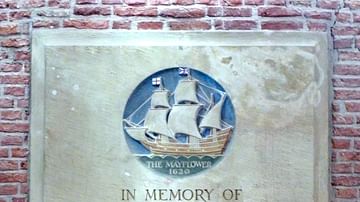
Definition
John Robinson
John Robinson (l. 1576-1625 CE) was the pastor of the Leiden congregation of separatists, some of whom made up the party (later known as pilgrims) who sailed on the Mayflower in 1620 CE to establish the Plymouth Colony in North America. Robinson...
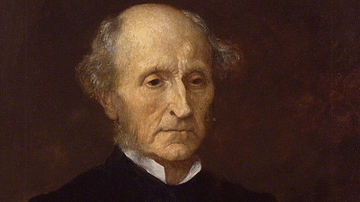
Definition
John Stuart Mill
John Stuart Mill (1806-1873) was a highly influential English philosopher of the Victorian Era. His writings were influenced by the Enlightenment thinkers and German Romanticism. Besides philosophical works, he wrote on mathematics, language...
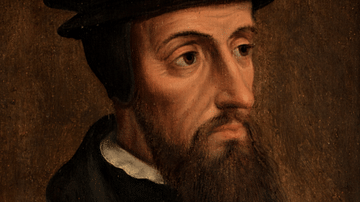
Definition
John Calvin
John Calvin (l. 1509-1564) was a French Reformer, pastor, and theologian considered among the greatest of the Protestant Reformation along with Martin Luther (l. 1483-1546) and Huldrych Zwingli (l. 1484-1531). Calvin synthesized the differing...
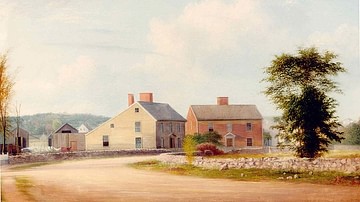
Image
Birthplace of John Adams and John Quincy Adams in Braintree, MA
Birthplace of John Adams (right) and his son John Quincy Adams (left) in Braintree, Massachusetts, oil painting by G. N. Frankenstein, 1849.
National Park Service.
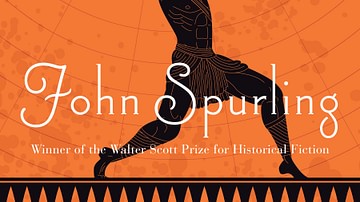
Interview
Interview: Arcadian Days by John Spurling
Join World History Encyclopedia as they sit down with John Spurling to talk about his new book of Greek mythology retellings Arcadian Days, published by Pegasus Books. Kelly: Thank you so much for joining me to talk about your book Arcadian...
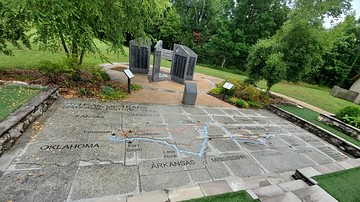
Article
A Soldier Recalls the Trail of Tears: John G. Burnett Account
John G. Burnett (b. 11 December 1810) was a private in the US Army in 1838 when he was ordered to act as interpreter between US officials and the Cherokee during the forced removal of Native Americans now known as the Trail of Tears. On his...

Article
John Knox on Female Leadership
The rule of women in government and ministry has long been a source of controversy in the Christian Church. Beginning with the Apostolic period, female leadership has been embraced and resisted by innumerable people, the debate centering...
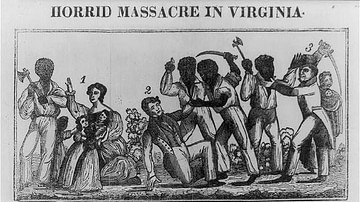
Article
The Aftermath of Nat Turner's Insurrection by John W. Cromwell
John Wesley Cromwell (l. 1846-1927) was an African American civil rights activist, educator, historian, journalist, and lawyer who wrote extensively on slave revolts, especially Nat Turner's Rebellion of 1831. Drawing on primary sources...
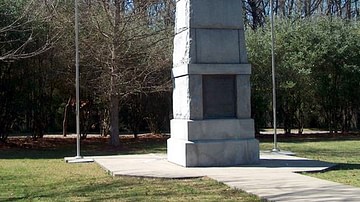
Article
Trail of Tears: Memorial and Protest of the Cherokee Nation by John Ross
The Trail of Tears was the forced relocation of the "Five Civilized Tribes" – Cherokee, Chickasaw, Choctaw, Muscogee Creek, and Seminole – from their ancestral lands in the Southeastern region of the United States to "Indian Territory" (modern-day...
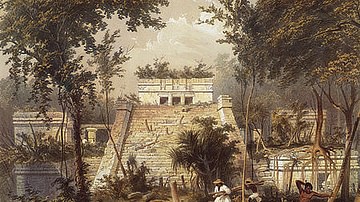
Article
Early Explorers of the Maya Civilization: John Lloyd Stephens and Frederick Catherwood
The names of John Lloyd Stephens and Frederick Catherwood are forever linked to the Maya and Mayan studies as the two great explorers who documented the ruins from Copan in the south to Chichen Itza in the north. The stories told by Stephens...